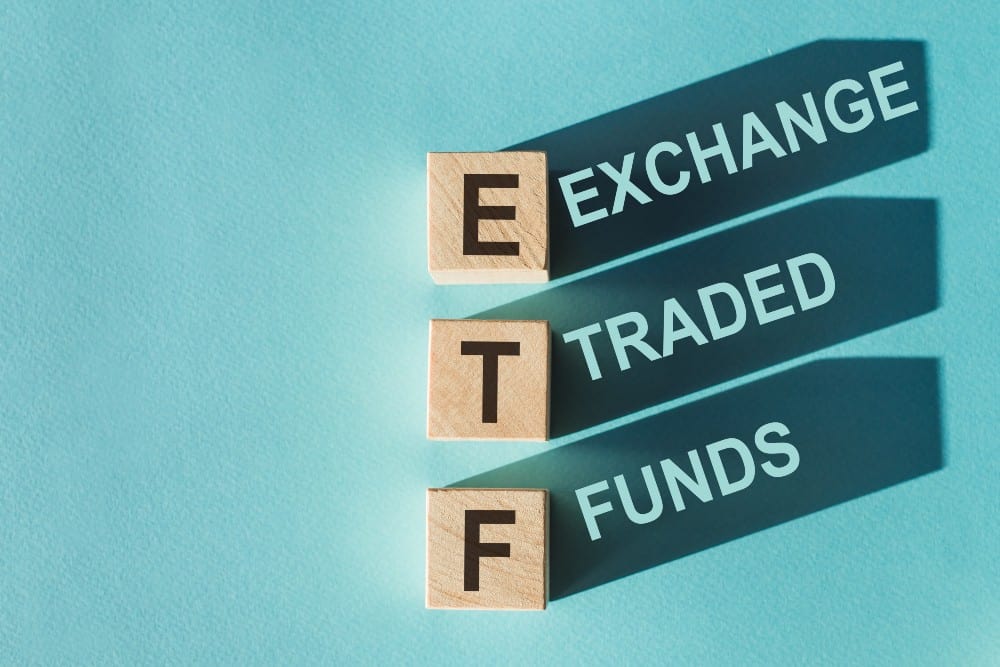Exchange-traded funds (ETFs) are becoming increasingly popular especially with passive investors. Even beginners can test the waters through ETF investing. Since diversification is the contemporary theme, ETFs enable seasoned and novice investors to capture broad indexes or sectors in one basket.
All ETFs have investment objectives, so prospective investors won’t be clueless when investing. You can also check out the asset allocation first to find out if it aligns with your risk appetite. Each ETF has asset categories, which means the holdings in the portfolio could be stocks, bonds, commodities, and cash.
Another benefit to beginners is the ease to execute sector rotation. Since ETFs trade like regular stocks, you can move from sector to sector depending on the trends or stages of the economic cycle. If it’s your first time in ETF investing, BMO Equal Weight Banks Index ETF (TSX:ZEB) and Vanguard Growth ETF Portfolio (TSX:VGRO) are excellent for newbies.
Banking industry
BMO’s ZEB attempts to replicate the performance of the Solactive Equal Weight Canada Banks Index. The Fund holds or usually maintains the same proportion of the constituent securities of the index. Also, the benchmark index includes Canadian exchange-listed securities in the diversified bank industry.
Besides the exposure to Canadian bank stocks, the asset manager says ZEB is for investors looking for growth solutions. Note that all constituents are subject to market capitalization and liquidity screens. However, each stock in the Index is allocated an equal weight instead of market capitalization weight. Thus, it lessens security specific risk.
ZEB’s asset allocation is 99.24% stocks and 0.76% cash. The stocks are Canada’s Big Six banks. Toronto Dominion Bank has the most weight (17.95%). At $41.01 per share (+5.23%), the ETF pays a decent 2.94% dividend. In the last 10 years, the total return is 241.12% (13.04% CAGR).
Technology & financial
Vanguard’s VGRO seeks to provide long-term capital growth. The fund ($2.71 billion net assets) invests primarily in equity and fixed income securities to achieve its investment objective. Most of the time or under normal market conditions, the asset manager maintains a long-term strategic asset allocation of equity (about 80%) and fixed income (about 20%) securities.
However, Vanguard can reconstitute or rebalance the portfolio asset mix from time to time of it deems necessary. Would-be investors can expect the underlying funds to be index funds that provide exposure to broad-based equity and fixed income markets.
Currently, the geographic allocation is heavy in North America with U.S. and Canadian stocks comprising 43.7% and 29.9% of the total equity portfolio. For fixed income, it’s predominantly Canadian (59.4%) followed by the U.S. (19.3%). On weighted exposure, technology (19.75) and financials (19.3%) are almost dead-even, followed by industrials (12.6%) and consumer discretionary (12.5%).
Seven Canadian stocks and three American stocks are the top 10 equity holdings. The top three are Apple, Microsoft, and Shopify. As of January 26, 2022, VGRO trades at $30.85 per share (-5.46% year-to-date) and pays a modest 1.82% dividend.
No extensive evaluation
ETFs are generally for passive investors who wants to be rid of choosing individual stocks. Since the evaluation isn’t extensive, ETFs are also good for beginners. You only need to the look at the index an ETF seeks to replicate and the asset allocation.
The post Investing 101: 2 Top ETFs for Beginners appeared first on The Motley Fool Canada.
Should You Invest $1,000 In Vanguard Growth Etf Portfolio?
Before you consider Vanguard Growth Etf Portfolio, we think you’ll want to hear this.
Our S&P/TSX market doubling* Stock Advisor Canada team just released their top 10 starter stocks for 2022 that we believe could supercharge any portfolio.
Want to see if Vanguard Growth Etf Portfolio made our list? Get started with Stock Advisor Canada today to receive all 10 of our starter stocks, a fully stocked treasure trove of industry reports, two brand-new stock recommendations every month, and much more.
Click Here to Learn More About Stock Advisor Canada Today
* Returns as of 1/18/22
More reading
- 1 ETF to Bank On With a TFSA in 2022
- 3 Top ETFs for Tax-Free Passive Income in Retirement
- Canadians: 3 ETFs to Survive the Tech Stock Crash
- 3 Top ETFs to Protect Against Interest Rate Hikes
- 2 Top ETFs for High Growth
Teresa Kersten, an employee of LinkedIn, a Microsoft subsidiary, is a member of The Motley Fool’s board of directors. Fool contributor Christopher Liew has no position in any of the stocks mentioned. The Motley Fool owns and recommends Shopify. The Motley Fool recommends Apple and Microsoft.




 By:
By:





